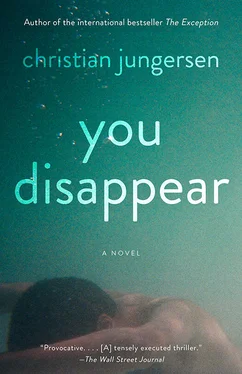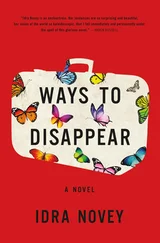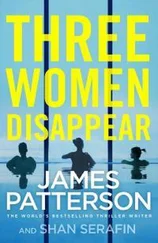In Brain-Wise: Studies in Neurophilosophy (2002), Churchland writes:
… if we allow discoveries in neuroscience and cognitive science to butt up against old philosophical problems, something very remarkable happens. We will see genuine progress where progress was deemed impossible; we will see intuitions surprised and dogmas routed. We will find ourselves making sense of mental phenomena in neurobiological terms, while unmasking some classical puzzles as preneuroscientific misconceptions. Neuroscience has only just begun to have an impact on philosophical problems. In the next decades, as neurobiological techniques are invented and theories of brain function elaborated, the paradigmatic forms for understanding mind-brain phenomena will shift, and shift again . (p. 32)
A New Renaissance
The most radical neurophilosophers believe that the next 30 years of neurological research will bring about greater changes in our shared notion of what it means to be human than what has been achieved by the last 300 years of philosophy.
A comparison with the late-European Renaissance and the scientific revolution is germane. Until 500 years ago, physics, biology, and chemistry were considered part of “natural philosophy,” not “natural science.” Great minds who wanted to explore the natural order of the universe had no other means to do so than logic and reason, since their observational equipment was extremely limited. The major philosophers had concluded that the world consisted of four fundamental elements: fire, earth, air, and water. They were also of the opinion that the earth lay at the center of the universe, while around it floated the planets and stars, and beyond that the angels and God. Their entire system of thought comprised a cosmology that was complex yet logically coherent.
The rapid development of telescopes and microscopes around the year 1600 changed everything. Suddenly, one could observe and measure many aspects of the world that had been previously hidden. Essentially every explanation that philosophers had arrived at for the physical world through the exercise of pure reason turned out to be wrong. And not wrong in a trivial sense, but in fact tremendously misleading.
Today we have witnessed the arrival of machines that can monitor the brain as it functions. New instruments and methods are being developed each year at lightning speed, with enormous consequences for our understanding of classic philosophical concepts such as free will, responsibility, determinism, consciousness, language, identity, and the mind-body problem.
Our time’s new instruments will usher in a wholesale upheaval in everything that philosophers, psychologists, and scientists think they know about human beings, corresponding to a new Renaissance. In time, this changed conception of humanity will spread to the judicial system, education, literature, art, and the very way we conceive of ourselves and others.
“The acoustics would be perfect except for this wall. It’ll create reflections that might diminish the stereo perspective, but we can just hang up some Rockfon sound batts.”
Frederik beams with delight, contemplating the possibilities of the claustrophobic apartment the realtor is showing us. I hate being in here. “You mean blankets of rock wool on the inside wall?”
“Yes.”
“I don’t want rock wool hanging on our wall!”
“Ha-ha!” He laughs his noisy mechanical laugh at the thought. “Is that so? Well it won’t really be that way! I’ll wrap the batts in felt, so they look almost like lawn-chair cushions.”
“I don’t exactly want lawn-chair cushions hanging on the wall either.”
“Well, we’re both going to have to compromise there. It’s important to me. And there are two of us.”
It’s the first time since the operation that he’s said compromise or two of us . There’s progress all the time. Now I can leave him home by himself — he stays in his workshop anyway, pretty much from when he wakes up till when he goes to bed — so we no longer have Thorkild and Vibeke at the house every weekday. And when he’s rested, strangers think he’s healthy — that he’s just an unusually self-centered man with an obnoxious laugh.
We’re accustomed to living modestly. But what we can afford now — on his disability pension and my teacher’s salary — is very modest. We’re looking only at two-bedroom apartments. Somehow we’ll have to manage the lack of space. But I’m going to miss my yard something terrible. I’m looking for an apartment I can be happy to come home to after a day at work, an apartment that despite the lack of square footage is light and inviting. An apartment where I can imagine a future.
The one we’re looking at now is horrible. Even though it’s one of the larger apartments on my list, the layout is so ill conceived that regardless of where I stand, it makes me feel trapped. Even the realtor looks as if being here is making him ill.
“I could have this room to myself,” Frederik says happily when we’re in the only large room, which also happens to face south. “My desk could stand here, my workbench here. I could have a bed here, and the armchair could stand here. On this wall I want my large poster, and over here I want a bulletin board.”
“What’ll we use for the living room then?”
“The room next to this one.”
“We can not share our bedroom with Niklas!”
“He’s a big boy now and will be moving out soon. You have to think of the long term, Mia. This is an apartment we’ll have for years and years after he moves out.”
“But we’re also going to have it now, while he’s still living at home.”
“He can move in with Emilie. He’d be happy to, I’m sure. Then he’ll be happy and we’ll be happy. See, it’ll work out great. I could have the TV here, and then I can watch it from the armchair and the bed and the desk. It’s a fantastic apartment. I think we’ll take it.”
I try to avoid the agent’s gaze. “Frederik, it’s simply out of the question.”
Every minute we’re here, I despise this apartment more. The view on either side is wretched, looking straight into other apartments, and the staircase is squalid, almost disgusting.
Frederik acts as if he doesn’t hear me. I canceled two earlier showings because I only want to look at apartments when he’s rested. He’s rested now, but this showing has brought out the worst in him.
It’s also hard to know how much I should listen to him. He’s right, that we’ll end up keeping the apartment for a long time after Niklas leaves home. But who’ll Frederik be in two years? Who’ll he be in two weeks? Will he lose all interest in acoustics and stereo equipment from one day to the next, just like he did with motor sports?
The realtor tries to fake some enthusiasm for the possibilities. He talks about the lovely shared party room in the basement and the excellent soundproofing of the windows.
But I have no idea if Frederik will get any better than he already is. The doctors said his progress would be rapid in the beginning, but that after the first three months it’d gradually stop. And no one can say when it will stop completely.
Frederik stands with his head in the breaker box. “It gets better and better!” he exclaims. “Look, there are two separate circuits for the electricity to my room. So we can connect the lights to one and the hi-fi to the other. That could make a huge difference.”
I tell the realtor that we’ll think about it, and drag Frederik away.
On the way home, I decide that from now on, it should be just Niklas and me who choose the apartment. But I don’t know how much I should listen to Niklas either. He hates being home anyway, and in a couple of years he’ll be moving out. Then I’ll be stuck with the apartment and Frederik all by myself.
Читать дальше



![Ally Carter - [Gallagher Girls 01] I'd Tell You I Love You But Then I'd Have to Kill You](/books/262179/ally-carter-gallagher-girls-01-i-d-tell-you-i-lo-thumb.webp)








